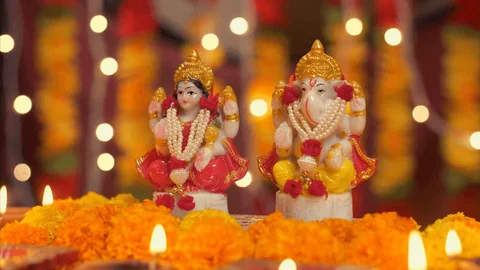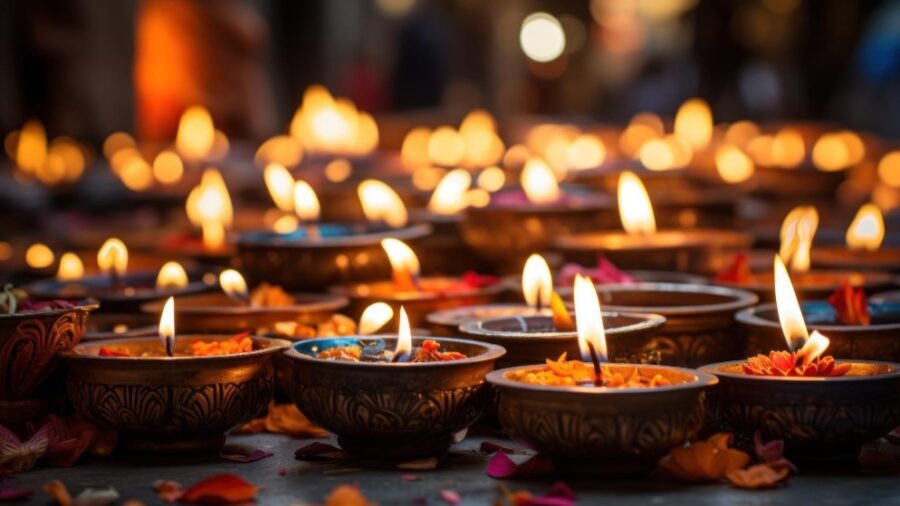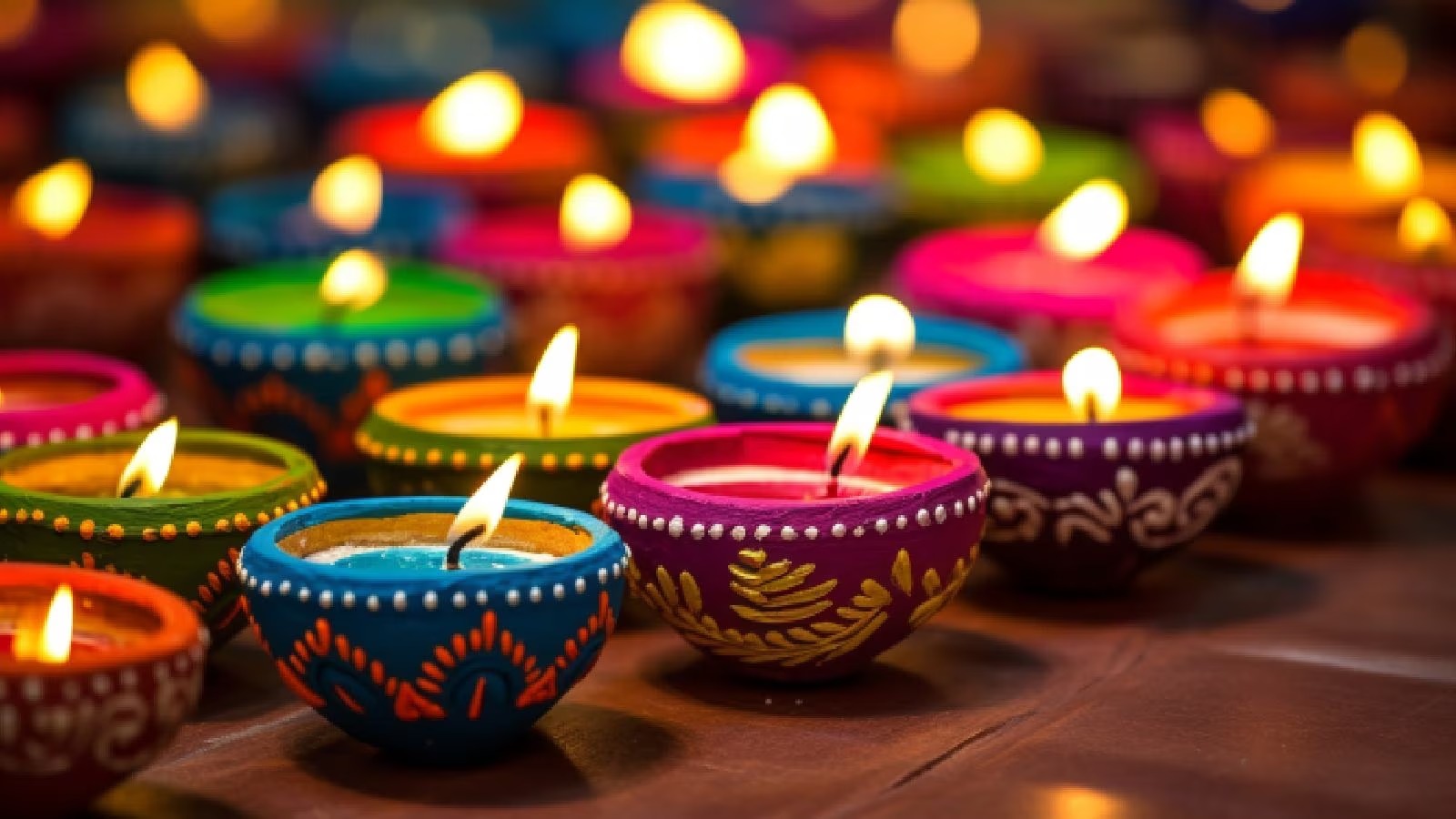Diwali, the resplendent Festival of Lights, illuminates the world with its vibrant spirit. Observed by millions worldwide, this joyous five-day celebration honors the eternal triumph of light over darkness, good over evil, and knowledge over ignorance. Diwali’s significance transcends cultural boundaries, symbolizing the universal struggle between light and darkness, righteousness and wrongdoing.
As the festival commences with Dhanteras, devotees seek divine blessings for prosperity, wealth, and good fortune. The subsequent days – Choti Diwali, Diwali, Govardhan Puja, and Bhai Dooj – weave a rich tapestry of mythology, tradition, and spiritual significance. Families gather to perform sacred pujas, exchange gifts, and illuminate their homes with sparkling diyas and fireworks.
Beyond its mythological origins, Diwali embodies the values of knowledge, wisdom, and understanding. It celebrates the importance of family, friendship, and community, fostering love, compassion, and unity. As the world comes together to observe this radiant festival, may the spirit of Diwali illuminate our lives, dispelling darkness and ignorance.
The Five-Day Celebration
Commencing with Dhanteras on October 29, 2024, devotees seek divine blessings for prosperity, health, and happiness, It’s a tradition to purchase gold, silver, or new utensils to invite good luck and prosperity.
The second day, Choti Diwali or Narak Chaturdashi, honors Lord Krishna’s victory over the demon Narakasura. This day symbolizes the triumph of good over evil, and devotees often take a sacred bath before sunrise, followed by prayers and rituals.
Lakshmi Puja, or Diwali, celebrated on October 31, 2024, holds auspicious timings:
- Lakshmi Puja Muhurat: 6:52 PM – 8:41 PM (IST)
- Pradosh Kaal: 6:10 PM – 8:52 PM (IST)
- Vrishabha Kaal: 6:52 PM – 8:41 PM (IST)
- Amavasya Tithi Begins: 6:22 AM (IST)
- Amavasya Tithi Ends: 8:46 AM (IST) on November 1
Families gather for Lakshmi Puja, offering heartfelt prayers, sweets, and flowers to Lord Ram, Goddess Lakshmi, Lord Krishna, Lord Ganesha, Lord Kubera, and Goddess Saraswati.

Diwali and Lakshmi Puja
The third and main day of Diwali is the most significant event of the festival. Families gather to perform puja, offering sweets, fruits, and prayers to Lord Ram, Goddess Lakshmi, Lord Krishna, Lord Ganesha, Lord Kubera, and Goddess Saraswati. The evening is filled with sparkling fireworks, illuminated homes, and joyful celebrations.
Govardhan Puja and Bhai Dooj
The fourth day, Govardhan Puja, honors Lord Krishna’s protection of nature and mankind. Devotees prepare a variety of delicious dishes, known as Annakut, and offer prayers to Lord Krishna.
The fifth and final day, Bhai Dooj, celebrates the sacred bond between brothers and sisters. During Bhai Dooj, sisters fervently pray for their brothers’ health, happiness, and long life, while brothers reciprocate with thoughtful gifts.
The Profound Significance of Diwali
Diwali’s significance extends far beyond its mythological origins, embodying universal values and timeless life lessons that resonate with individuals from diverse backgrounds. This radiant festival symbolizes the triumph of illumination over darkness, representing the pursuit of knowledge, wisdom, and clarity. By illuminating homes and hearts, Diwali serves as a poignant reminder of the transformative power of inner light.
The celebration also honors the eternal struggle between righteousness and wrongdoing, encouraging individuals to embark on a virtuous path. Beyond moral ideals, Diwali underscores the vital importance of nurturing family bonds, friendships, and community ties. Through shared rituals, gatherings, and acts of kindness, the festival fosters a collective sense of joy, unity, and belonging.
Read More :
Timeless Traditions and Customs
Diwali’s festive spirit is brought to life through an array of vibrant traditions and customs, weaving warmth and unity into the fabric of communities and families. Homes shine brightly with diyas, candles, and decorative lights, symbolizing the triumph of illumination.

Intricate rangoli designs, crafted from colored powders, flowers, and rice, adorn doorsteps and courtyards, serving as welcoming gestures and symbols of prosperity. The exchange of thoughtful gifts, traditional sweets, and heartfelt greetings strengthens family ties, friendships, and neighborhood bonds.
At the heart of Diwali celebrations lies the sacred performance of puja, where families unite to offer prayers to revered deities, seeking blessings and prosperity. These meaningful rituals create lasting memories, reinforcing bonds that transcend time.

